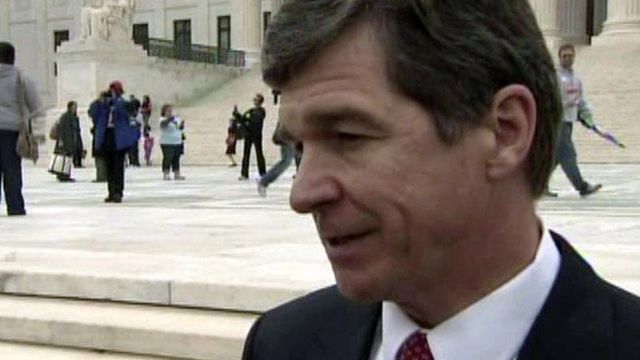Rights of child suspects debated at high court
A little-known Chapel Hill break-in was the stimulus for a challenge heard Wednesday before the U.S. Supreme Court.
Posted — UpdatedIn 2005, Chapel Hill police questioned a seventh grader on school grounds about break-ins that occurred off campus.
According to case documents, officers pulled the 13-year-old, identified only as J.D.B., out of class at Smith Middle School and took him to a school conference room. After several minutes of questioning during which officers urged the boy "to do the right thing," the young suspect confessed.
The boy's parents were not notified and officers did not initially tell him that he was not in custody and was free to leave at any time. If he had been taken into custody, officers would have been obligated to advise him of his Miranda Rights.
The boy’s lawyer says his treatment was unconstitutional and has argued the case all the way to the nation’s highest court.
The case has gone through several rounds of appeals because some attorneys have advocated that the way police handle Miranda Rights should be adapted when the suspect is a minor.
"Children are categorically different and don't handle stress the same way," said Hannah Demeritt, an appellate defender and law professor at Duke University. "They don't have the same cognitive ability as an adult."
Attorney General Roy Cooper argued that Miranda Rights, which inform suspects of their constitutional rights including the right to remain silent, should be applied the same in all criminal cases, even when the suspect is a minor.
Marsha Levick, co-founder of the Juvenile Law Center in Philadelphia, Pa., said children may be more likely to make false confessions.
"We don't want kids to be giving statements that are not appropriate, that are not true because they feel coerced by the nature of the environment," Levick said.
Cooper, in his first appearance at the Supreme Court, argued that changing the rules for questioning young subjects would place an undue burden on officers.
"The key here is we don't want officers to have to get into the mind of a juvenile to determine whether actions they do would constitute custody," Cooper said. "You don't want to turn Miranda upside down."
Justices Stephen Breyer and Elena Kagan pressed Cooper on why it's a burden to take extra care when dealing with children, but Justices Antonin Scalia and John Roberts grilled Barbara Blackman, the appellate defender for J.D.B. v. the state of North Carolina, on how officers should reasonably adjust their questioning to suit the individual ages of child suspects. A nine-year-old is different from a 13-year-old and a 13-year-old is different from a 17-year-old, they said.
Hampton Dellinger, a Triangle attorney and member of the Supreme Court Bar Association, said there wasn't a clear winner after Wednesday's arguments.
"The U.S. Supreme Court reminded me a lot of the Wake County School Board. There's a lot of disagreement," Dellinger said. "The stakes are really high and I think the outcome is unsettled."
State courts had previously sided with officers, ruling that the boy was not in custody when he was questioned and therefore did not need to be advised of his rights. In a 4-3 ruling in 2009, the state Supreme Court upheld previous rulings, but in a dissenting opinion, Justice Edward Brady said the investigation was unfair and that the teen was carefully targeted to make a confession.
The 13-year-old at the center of the case is now an adult and attorneys said he did not attend the Supreme Court arguments and has not closely followed the case.
It could be months before the Supreme Court issues a ruling based on Wednesday's arguments.
• Credits
Copyright 2024 by Capitol Broadcasting Company. All rights reserved. This material may not be published, broadcast, rewritten or redistributed.






